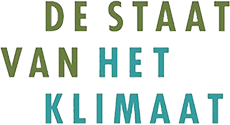Het verheugt mij zeer dat Roger Pielke sr, een bekende criticus van de te sterke focus die er heerst binnen de klimaatgemeenschap op de invloed van broeikasgassen, volgende week woensdag een presentatie zal geven in Wageningen. Organisator Bert Holtslag laat me zojuist per e-mail weten dat het een publiek colloquium is. Ik ga er zelf zeker heen.
Pielke’s voordracht zal plaatsvinden in het Atlas-gebouw (gebouw 104), droevendaalsesteeg 4. Hieronder de volledige aankondiging:
16 Mar 2011 15:30 – 16 Mar 2011 17:00
Location: Wageningen University
“A Way Forward In Climate Science Based On A Bottom-Up Resource-Based Perspective”
Recent research and observations of the climate system have shown that the climate system is more complex than concluded in the 2007 IPCC WG1 report, and, moreover, is not evolving as predicted by the multi-decadal global climate models. Moreover, these models do not appear to be capable of providing skillful predictions of regional and local societally and environmentally important impacts in the coming decades. Examples and reasons for this lack of forecast skill are presented. This includes the failure of a global average surface temperature trend as a robust metric of global warming, and, more generally, of climate change.
As an alternative approach, we are developing a bottom-up, resource-based vulnerability assessment perspective. There are 5 broad areas that we can use to define the need for vulnerability assessments : water, food, energy, human health and ecosystem function. Each area has societally critical resources. The vulnerability concept requires the determination of the major threats to these resources from climate, but also from other social and environmental issues. After these threats are identified for each resource, then the relative risk from natural- and human-caused climate change (estimated from the GCM projections, but also the historical, paleo-record and worst case sequences of events) can be compared with other risks in order to adopt the optimal mitigation/adaptation strategy. Examples of this approach will be presented.


